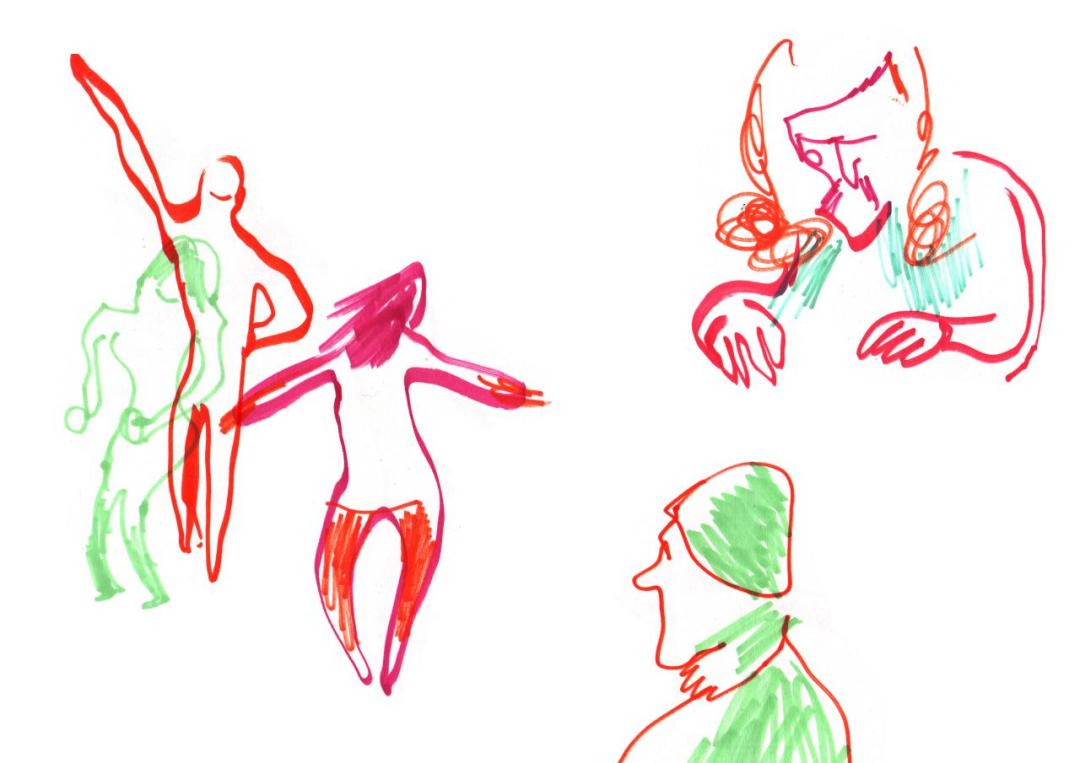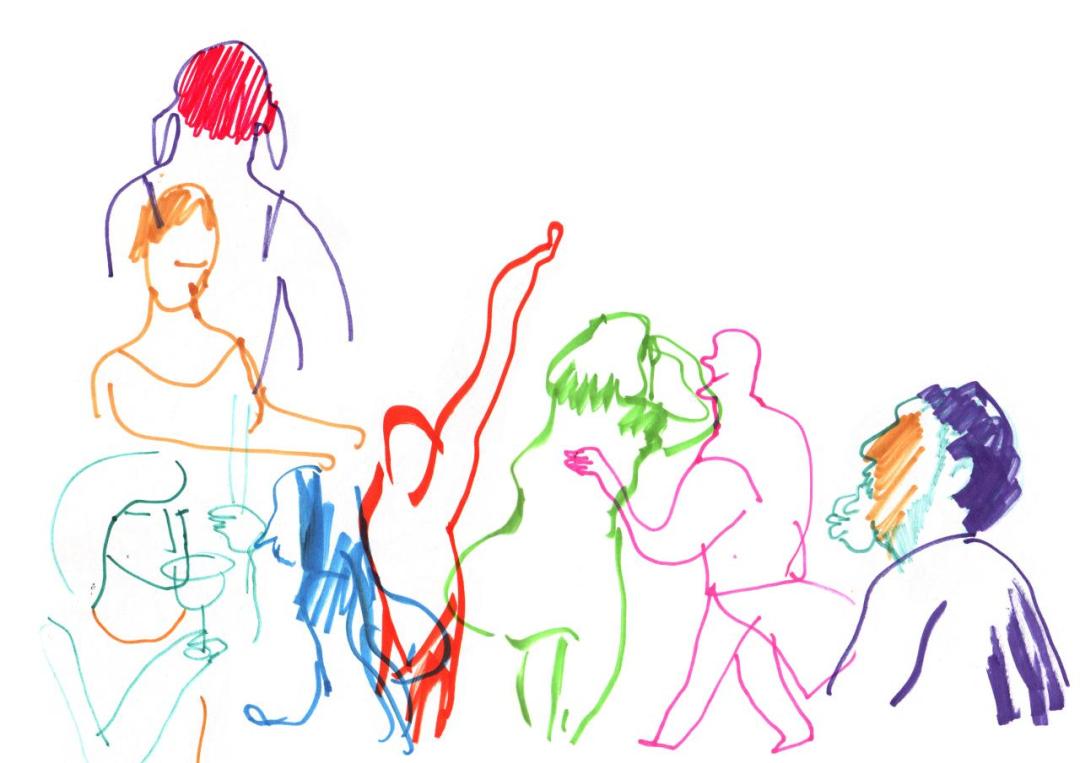By Micha Frazer-Carroll
CN: Depression, anxiety, exercise,
alcohol, hallucinations, doctors
“But is there a difference, when we discuss ‘mental illness’, and when we talk about ‘mental health problems’?” I stared at my supervisor blankly. There are lots of reasons why I love studying Psychology – being forced to have conversations like this is one of them.
Nuances in language are something I often think about – it’s both scary and exciting that so many of the labels we use every day are pregnant with social, historical, and political gravitas. But for me, this is a novel consideration. What does it really mean to be ‘ill’? When we talk about ‘mental illness’, is this really the most useful way of conceptualising the complex range in our daily emotional, behavioural and cognitive processes, and their efficiency in functioning? Does the idea of mental illness erase anything? And if so, might ‘problems’, or beyond that, the consideration of good mental health, be more forgiving?
A good place to start is considering what illness is positioned up against – what is the opposite of being ill? Whilst our minds automatically shoot towards having good health, in practice, looking at the way that we discuss health in our everyday lives, I don’t think we really mean the state of actually having good health. When we cast our minds to things we’re grateful for, a common source of thanks is that we ‘have our health’; but this is often thrown up as a reminder, signalling to something we are not acutely and consciously aware of every day. Few people wake up each morning and thank their lucky stars for their health because I think what we’re really doing is conceptualising health as the absence of illness. And if something’s not there, you don’t notice it.
“The way we see medicine in our society – you either are ‘normal’ – fine and functioning, or you have illness”
When we do remember we have health, we’re not usually talking about having a strikingly low resting heart rate, or consistently getting our five a day. We’re still talking about absence – absence of symptoms, absence of pathology, absence of the degradation of quality of life, absence of the need for treatment. This is a crucial aspect of the way we see medicine in our society – you either are ‘normal’ – fine and functioning, or you have illness. You might remark on how you should go to the gym a little more, or drink a little less, but these things exist outside of the realms of diagnosis, they’re abstract concepts that we see as not needing to be worried about unless they present a threat of us moving into the illness category.
But what’s the impact of extending this logic to the realm of the mental? I had a very long period where my mental health was bad – a time that, in retrospect, I guess I would say I was ‘ill’. Before this time in my life, I had never thought twice about my mental health – whether it was good or bad. Any ‘illness’ of the brain felt far off – mentally filed away as a place that I was in no danger of falling into. Echoing our conceptualisation of physical illness, I didn’t realise that I had mental health. It was never something that I was mindful of, or watched out for, because it didn’t seem like a remarkable state, it was simply existing with the absence of illness.
“The slope from the ‘healthy’ to ‘ill’ category can be slippery and fast”
The illness lasted a while, and this year, I got much better – but I don’t know if I should say that I’ve ‘recovered’. Many people who have had distinct periods of clear mental health problems will remark that the language of recovery seems pre-emptive, and again feels like an unproductive method of categorising what is a nuanced journey. It’s as if once you hit rock bottom, and have to claw your way up and out, things aren’t ever really the same, perhaps it’s that you’re more acutely aware of your vulnerability, and of the fact that the slope from the ‘healthy’ to ‘ill’ category can be slippery and fast.
These days I see, in my everyday life, little glimpses of ‘illness’ – my day-to-day functioning makes full use of the range on the emotional spectrum, and I have ‘off days’ where I get quite anxious. Friends and colleagues reaching for the ‘recovered’ camp have also expressed similar worries – concerns that each one of these glimpses might in fact be a huge flapping red flag signalling an imminent descent back to ‘sickness’. But I’d argue that this often (although not always), is simply the fact that once you’ve been ‘ill’, you become aware that mental health exists. We in fact are not always clearly divided into ‘ill’ and ‘not ill’, but instead sometimes have ‘mental health problems’ that are worse during certain periods, sometimes debilitating and consistent – but equally can pop up in dribs and drabs or disappear indefinitely. You can feel low for 13 days and it is legitimate and comparable to the 14 day mark that medically signifies clinical depression. You’re not always either ‘fine’ or ‘not fine’, there is such a thing as ‘on the cusp’, ‘not quite’ or ‘a little bit’.
We should not forget that the ‘illness’ model is important for many, in legitimisation, understanding, treatment and in not feeling overburdened with responsibility. But equally we should remember that mental health is more of a spectrum than we often consider. For me, the process of hitting rock bottom and getting ‘better’ personally forced me to get acquainted with the fact that I always had mental health. It also made me become aware of my mental toolkit, learning exactly what resources I needed not just to be okay, but to make my mental health actively, vibrantly good – great, even.

Your mental health isn’t created when you have a salient hallucination for the first time, or when you pass an A4 questionnaire back across the doctor’s desk and your symptoms pass a certain threshold. It was there all along, and can stretch all the way from incredible distress to actual rich, fulfilling and fantastic quality of life. It’s not just ‘illness’ or ‘lack thereof’.
Whilst we should acknowledge the importance of the concept of mental illness, I also think it’s important to emphasise the independent existence of mental health. A greater societal awareness of ‘mental health problems’, in the simplest form of the concept, is crucial to us keeping ourselves well and afloat. It helps us remember that mental health both exists, and is treatable, before crisis point. Problems are situated on a scale, and their existence is not bound by time or severity. We all have mental health, and it is not simply illness, but wellness too.


One thought on “We all have mental health. Did you forget?”